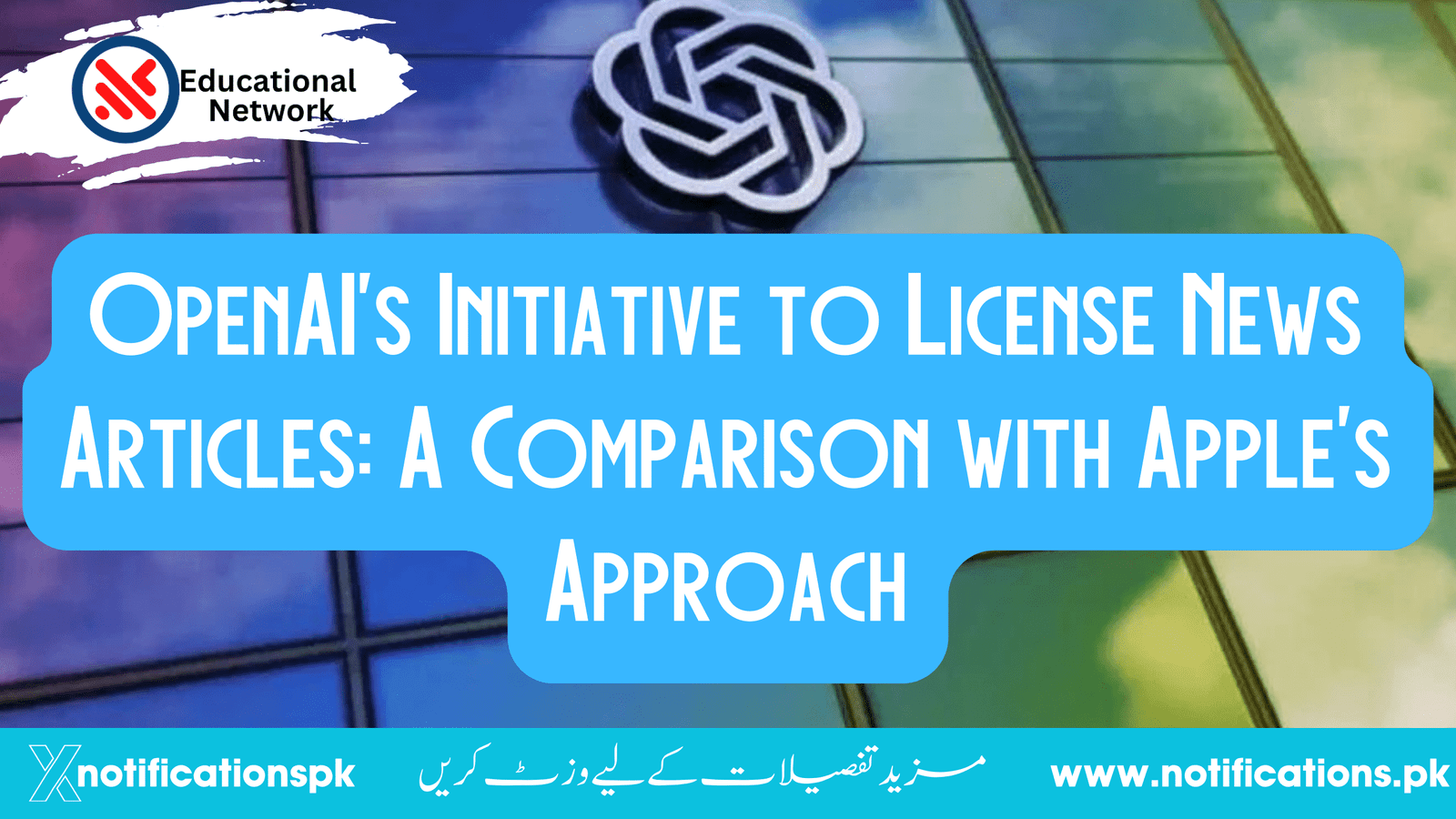In the rapidly evolving landscape of artificial intelligence, access to high-quality training data is paramount. Recent advancements in AI, particularly chatbots like OpenAI’s ChatGPT, have sparked debates about the use of outside content to train AI models. One of the central issues in these debates is whether companies should pay for licenses when using news articles and other content. Interestingly, Apple seems to have taken a step in this direction, and OpenAI is now following suit.
OpenAI’s Move to License News Articles
OpenAI, known for its pioneering work in AI research, has been making waves with its AI language models like ChatGPT. As these models gained popularity, concerns arose about their use of external content without proper licensing. In response to this, OpenAI has initiated talks with various media groups with a clear objective: they want to pay for licensing news articles.
This strategic move by OpenAI is intended to allow the company to continue training its AI models with accurate and up-to-date information, while also avoiding potential copyright issues. It’s a significant shift in approach that underscores the growing importance of respecting content creators’ rights in the AI community.
Legal Challenges and The New York Times Lawsuit
However, OpenAI’s path to licensing news articles is not without its legal hurdles. The New York Times has taken legal action against both OpenAI and Microsoft, alleging the unauthorized use of their articles. The lawsuit claims that not only did these companies profit from the content but also directly competed with the original work, which further exacerbated copyright concerns.
OpenAI has responded to these legal challenges by emphasizing its commitment to respecting content creators’ rights. The company has expressed its willingness to explore new revenue models with media organizations to address these concerns. Nevertheless, The New York Times is determined in its pursuit of justice and is seeking significant damages for the unauthorized use of its content.
Proposed Payments and Apple’s Approach
Reports suggest that OpenAI has proposed payments ranging from $1 million to $5 million to license content for AI training. This is a substantial commitment, but it pales in comparison to Apple’s approach. Apple, in its quest to develop its generative AI, has reportedly offered much larger sums. Multiyear deals are said to be on the table, potentially worth at least $50 million. These deals include licensing news archives from various publishers, such as Condé Nast, NBC News, and IAC.
While Apple’s success in negotiations remains uncertain, the vast difference in proposed payments suggests that Apple might have better odds than OpenAI in securing these agreements with publications. The contrasting approaches of these tech giants highlight the complexities and challenges surrounding the use of news articles in AI training.
In conclusion, OpenAI’s decision to pay for licensing news articles is a significant step towards addressing copyright concerns and respecting content creators’ rights. However, legal challenges and competitive bids from the likes of Apple make it clear that the road ahead is paved with uncertainty. As AI technology continues to advance, finding a balance between innovation and copyright protection will be crucial for the tech industry’s future.
Stay tuned as we follow the developments in this intriguing chapter of AI and intellectual property right.
